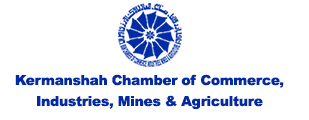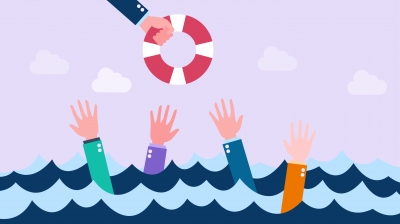The crisis, which gripped the world economy in 2008, is by no means comparable to the current era, both in terms of severity and impact and no event had changed or damaged the world’s economy as much as the Coronavirus did since the World War II according to economists. The crisis caused by the Coronavirus pandemic plunged the global trade into a deep recession disrupting the supply chain and there are just signs of improved trade in parts of the world more than a year later; the signs that are specific to advanced economies and these signs of improvement have little to do with Iran. In the same way that Iran has not been very successful in caring for and preventing the spread of the disease and its control, it has not made significant progress in caring for the economy and economic activists. The coronavirus outbreak in the last days of 2019 affected the world economy beyond forecasts and caused the most severe damages to sub-sectors of the economy, which were related to the trade, due to limited communication and closing borders. Recently, during a webinar, the WTO interpreted the Coronavirus outbreak as a storm that cut global trade in goods and services in 2020 to 24% conclusively. On the other hand, the increase in world transportation prices also exerted a heavier burden on world trade during the same time interval. Unlike the global financial crisis in 2008, which affected only parts of the world economy, the coronavirus challenged individual countries and sub-sectors of the economy; Iran was not safe from the crisis either. For the first time in two decades, Iran's trade has run a deficit. While from the beginning of 1999 to 2019, Iran has always witnessed a trade surplus in all seasons, it faced a deficit of $ 200 million in exports compared to imports in 2020. Sanctions, the coronavirus outbreak and the sharp drop in oil prices came together to form one of Iran's biggest and most serious economic challenges during 2020.
More challenging than the events imposed on the Iranian economy over the past year, what has always further weakened the face of the weak private sector of the economy and limited their breadth more is that it has been pointed out: There is no signs of improvement in the country's trade and economic trend. Now, almost 15 months after the start of the Coronavirus epidemic, the world's major economies have either recovered or are on the path to recovery, but economic activists in Iran are still ignored to be on spotlight and be supported.
The fact that the economies of developed and advanced countries were able to overcome the crisis and to be on the path to recovery was beyond the great economic capacities and potential of strong companies and relied on government support. Countries such as the United States, China, and South Korea dedicated 10% of GDP to support the coronavirus-damaged businesses and the figure was even higher at 18% in countries such as Germany and Japan. In total, the global average of government supports for economic activists in the Coronavirus crisis was not less than 5% of GDP. This is while the government supports did not exceed 3% in Iran according to the government statistics.
The government's challenges in financing due to sanctions and limited oil sales, on the one hand, and, of course, distrust of the private sector's position in Iran's oil-based economy, on the other hand, have caused the government's plan to support the economic activists in the wake of the coronavirus outbreak not to be so effective. Nevertheless, nowadays, the survival conditions for private sector activists have become more difficult than before, and a slight delay for crisis management could lead to a catastrophe on a larger scale. Nowadays, private sector conditions are to some extent similar to dried groundwater aquifers; the life of the groundwater aquifers depend on the flow of water in them and they will disappear if their drying time is prolonged and then, any amount of rain hitting these groundwater sources will have no effect; because the aquifers function depends on the existence of sources and grooves under the ground and they disappear due to the excessive dryness. The private sector is currently in the same situation as well. Restrictions resulted from the sanctions and the spread of the coronavirus on the one hand, and disruptive laws and barriers to business on the other hand, are drying all capacities of the private sector. If this happens once, then a huge amount of resources and supports of the government will not be effective either and will be like the rain in the salt marshes.
Now, in the current situation where there is neither signs of coronavirus control nor a clear hope for the reduction of sanctions, and Iran's trade wheel has taken on a difficult and rocky path, what should be done so that the country's trade table does not dry up? The most explicit and eloquent answer to this challenge lies in the slogan of the year proposed by the Supreme Leader: Barrier-removal. There is no doubt that the economic challenges caused by the coronavirus will continue until the end of 1400 and there is little hope that the international sanctions will fade during this time interval. However, at the moment, removing disruptive business laws and facilitating the trade is the greatest service the government can do to save the coronavirus-hit economy. Facilitating disruptive laws and intrusive and unprofessional regulations in the four areas of taxation, social security, customs, and finally banking and the capital market, can allow the private sector, as the backbone of the economy, to pass safely through this delimeter whirlpool.
Keivan Kashefi
Board member of the Iran Chamber

